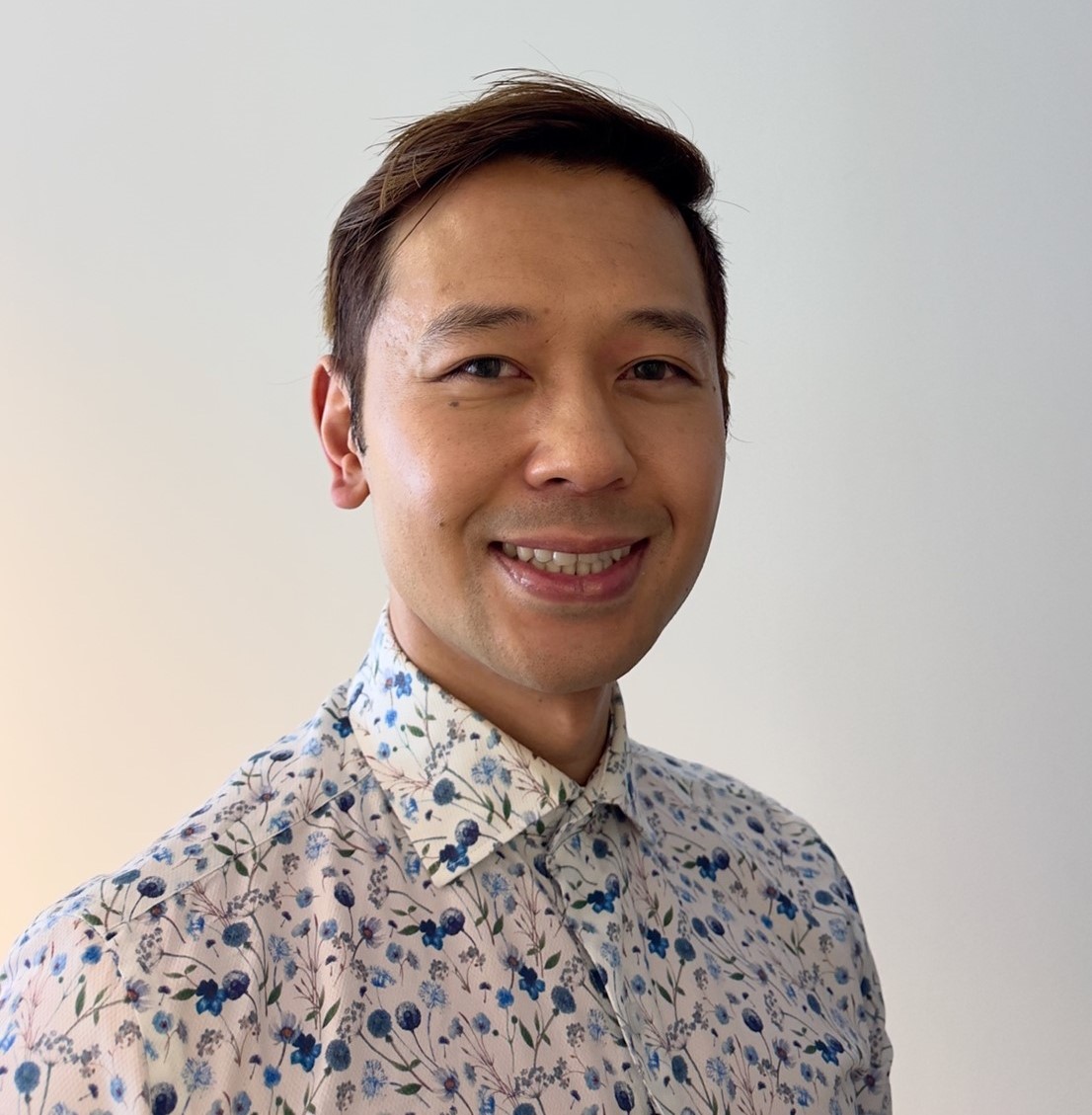- Our Doctors
- Dr Ta-chi Zhong Hu

Dr Ta-chi Zhong Hu
B.Sc., M.D., FRANZCR, Radiation Oncologist
Languages spoken
English, Spanish, Cantonese
Overview
Centres
Clinical interests
Clinical interest and sub-specialty expertise in breast cancer, genitourinary cancer, lung cancer, colorectal cancer, skin cancer, and central nervous system cancers.
Dr. Ta-chi Zhong Hu is a highly skilled radiation oncologist with sub-specialty expertise in breast cancer, genitourinary cancer, lung cancer, colorectal cancer, skin cancer, and central nervous system cancers.
He graduated Magna Cum Laude with a Bachelor of Science from Boston College and went on to earn his Doctor of Medicine from Flinders University. Dr. Zhong Hu completed his radiation oncology training at prominent tertiary institutions including Liverpool, Campbelltown, and St George Hospitals. Following his training, he served as a Staff Specialist at the esteemed Chris O’Brien Lifehouse before joining the expert team at Genesis Care.
Throughout his career, Dr. Zhong Hu has been deeply engaged in research, teaching, and clinical practice. He has served as a Conjoint Lecturer at the University of New South Wales and is an active member of the reference review committee for EVIQ. Known for his empathy, compassion, and dedication, Dr. Zhong Hu is committed to delivering evidence-based, patient-centered care.
Research interests
- Adaptive radiotherapy, quality improvement in minimising radiation toxicity, and special radiotherapy technique
Professional memberships
- The Royal Australian and New Zealand College of Radiologists (RANZCR)
- The American society for radiation oncologist (ASTRO)
- The European Society for radiotherapy and oncology (ESTRO)
- EviQ reference Committee
Recent Publications
- Wee Loon Ong, Adam Byrne, Revadhi Chelvarajah, Caris Chong, James Gallo, Mollie Kain, Jeremy Khong, Eileen O'Reilly, Cristian Udovicich, Chamitha Weeransinghe, Ta-chi Zhong Hu, Andrej Bece. Survey of brachytherapy training experience among radiation oncology trainees and fellows in the Royal Australian and New Zealand College of Radiologists (RANZCR). JMIRO 11 May 2022. DOI:10.1111/1754-9485.134.24
- Dr Björn Tampe, Dr Desiree Tampe, Samy Hakroush, Dr Ta-chi Zhong-Hu, Dr Sandip Rath, Dr Shoji Saito, Dr Hubert Kalbacher, Professor Elisabeth Zeisberg, Gerhard Mueller, Vera Gorbunova, Dr Raghu Kalluri. Modified DNA damage response as prerequisite for fibroblast proliferation in human kidney fibrosis. Nature Communications. On submission review April 2022
- Camilla Tutte; Matthew Reeves; Tachi Zhong Hu; Ashley Keates; Stephen Brady; Graeme Maguire; Simon Stewart. Pattern and outcome of heart failure-related hospitalization over 5-years in a remote Australian population: a retrospective cohort study of 617 Indigenous and Non-Indigenous cases. J. of Card Fail. 2017 Jun 13. Pii: S1071-9164 (17) 30187-2.
- Sara Khadjeh; Ingeborg Friehs; Tachi Zhong; Ivan Melnychenko; Tampe Bjorn; Fouzi Alnour, Maria Lascone, Michael Zeisberg; Raghu Kalluri; Pedro J. del Nido; Elisabeth M. Zeisberg. Endocardial Fibroelastosis is Caused by Aberrant Endothelial to Mesenchymal Transition. Circ Research. 2015; 116: 857- 866.
- Ingeborg Friehs; Ben Illigen; Ivan Melnychenko; Tachi Zhong Hu; Elisabeth Zeisberg; Pedro del Nido. An Animal Model of Endocardial Fibroelastosis. J Surg Res. 2013 Jun 1;182(1):94-100.
- Elisabeth Zeisberg; Ivan Melnychenko; Tachi Zhong Hu; Ingeborg Friehs; Raghu Kalluri; Pedro del Nido. Endocardial Fibroelastosis in Hypoplastic Left Heart Syndrome is Caused by Aberrant Endothelial to Mesenchymal Transition. Circulation. 2009; 120: S603.

You are leaving our website
You are now leaving our website. GenesisCare do not control this content and therefore are not responsible for its accuracy or reliability.
Disclaimer:
This website is provided for information purposes only. Nothing on this website is intended to be used as medical advice, or to diagnose, treat, cure or prevent any disease. It should not be used as a substitute for your own health professional's advice. Any medical procedure or treatment carries risks. Before proceeding with treatment, you should discuss the risks and benefits of the treatment with an appropriately qualified health practitioner. Individual treatment outcomes and experiences will vary.